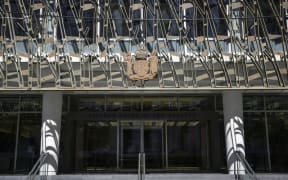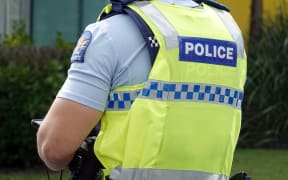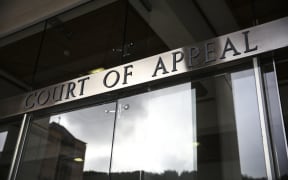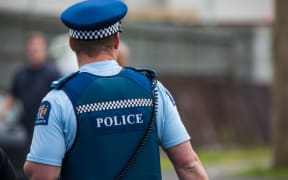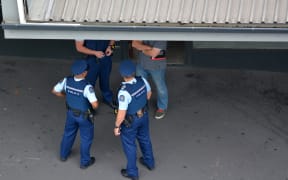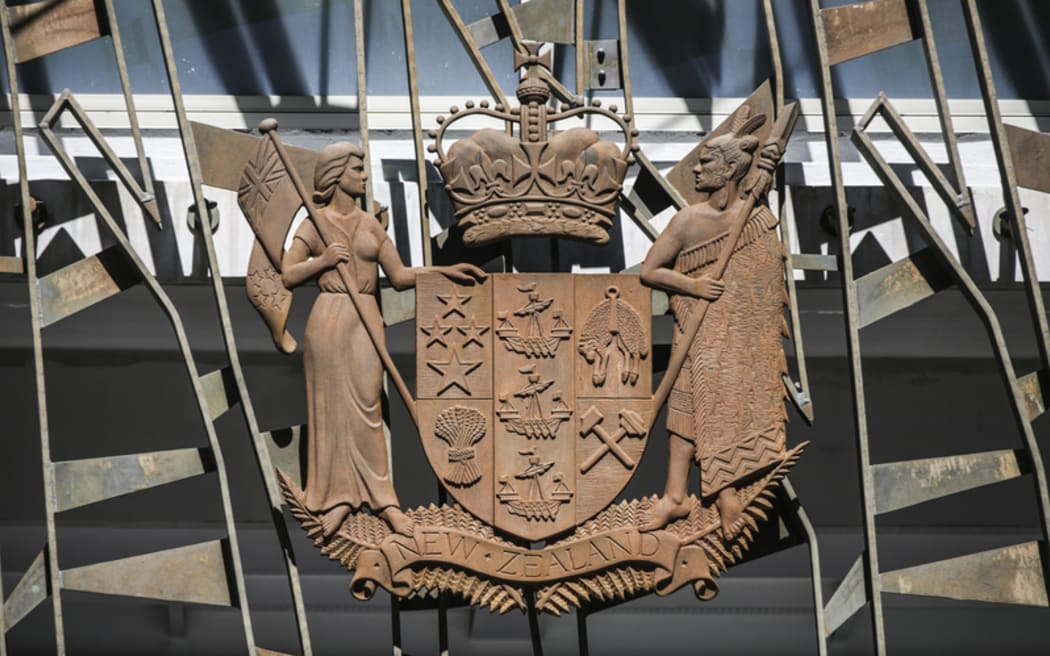
Supreme Court at Wellington. Photo: RNZ / Rebekah Parsons-King
The lawyer for a man appealing an aggravated robbery charge in the Supreme Court says his case raises deep question about the limits of police powers, privacy, and fundamental human rights.
Mahia Tamiefuna was convicted of the charge in 2021, and central to the case was a photo that was taken of him illegally by a police officer.
Tamiefuna was the passenger in a car which was randomly stopped and his photo was taken while the occupants were standing on the side of the road as the vehicle was impounded.
The photo was then allowed to be used in court in the successful conviction.
That evidence was the "lynch pin" that the whole case against Tamiefuna was based on, his lawyer Susan Gray said.
The Supreme Court is looking at whether the Court of Appeal was right to find the photo of Tamiefuna was "improperly obtained", and whether that court was correct to allow it as evidence anyway.
But the case could have sweeping implications.
A decision could settle whether police are allowed to photograph members of the public on the street who are not being targeted for a specific crime.
The Police Association fears it could have a big impact on how police do crucial intelligence gathering.
Gray told the court on Wednesday that there was no statutory power that allowed police to take photos in this way, something the Crown disagrees with.
She said if this practice was allowed it would undermine the public's trust and faith in police.
It risked opening the "floodgates" and sowed dangerous seeds.
If officers could take photos "willy nilly" then upload them into the police database, Gray said it could allow for racial profiling and other discrimination.
She argued the photograph was improperly obtained and breached Tamiefuna's rights to be free from search and seizure.
Officers had to have reasonable grounds to believe a crime had been committed, she said.
Tamiefuna's second lawyer, Emma Priest, said evidence gathered improperly or illegally by police was allowed in court far too often.
She said her analysis showed in 80 percent of cases, improperly obtained evidence was allowed in Court of Appeal hearings in recent years.
"This is not working the way that a credible and effective system of justice ought to."
She said currently evidence was allowed "very much judge by judge, case by case".
Police were being taught that they just had to not substantially depart from the law and improperly gathered evidence would be allowed into court, she said.
Gray said a crucial aspect of the case was the fact Tamiefuna was doing nothing wrong when the picture was taken.
"This case is significant because it raises issues of fundamental rights of individuals in New Zealand where they intersect with purported police powers.
"We all know there are evolving technologies available to the police which can be utilised to collect information about New Zealanders."
She said Tamiefuna was subjected to an unreasonable intrusion into his "reasonable expectation of privacy".
The Bill of Rights guarantees citizens can be free from search and seizure, she said.
"The appellants say [that] to legitimise this practise, under the guise of intelligence gathering, would provide licence and would be effectively an 'end justifies the means' approach," Gray said.
"And that's not consistent with a free and lawful democratic society.
"Cohesiveness and the upholding of fundamental human rights is an important foundation of a free and democratic society."
Police expected to collect intelligence - Crown
The Crown told the Supreme Court that society expected police officers to collect intelligence in order to stop crimes from happening.
Lawyer Peter Marshall said it was lawful for officers to record information about their interactions with people, including taking pictures of who or what they could see.
He said it was "collecting pieces of the jigsaw". It was very difficult to tell where any one piece would fit or what its value would be.
"We say there is no rule of law that provides the police may only make such records when investigating a crime that has actually occurred."
He said police were under a duty to prevent and detect future criminal offending and so were entitled and expected to collect information for its potential intelligence value.
"Police are not simply a reactive body that start from a standing start once a crime has been reported and then the investigations proceeds from there.
"The public rightly expects far more from the police."
Marshall said the officer had a number if reasons to take a photo of Tamiefuna that night.
The officer was suspicious that items found in the car were stolen - there was a woman's handbag but no women in the car, and there were four car batteries which are commonly stolen items.
The occupants of the car all had criminal convictions for stealing or other serious charges, Tamiefuna was subject to conditions having been recently released from prison, and it was late at night.
It was the combination of all these factors which led to the photography.
He said it was wrong for the Court of Appeal to categorise it as a "random" stop. It was not some generalised suspicion, but a particularised suspicion about particular people.
Justice Williams remarked earlier today in court that whatever law was "espoused by this court" could impact how police officers on the beat use their phones.
Also discussed in court was what constituted a search, and whether a photograph is biometric data.
Justice Joe Williams raised how artificial intelligence and facial recognition technology could play in.
He said technology which is able to do real time identification of individuals using CCTV is likely possible in a few years.
Justice Justice Kos made a general point that the issues raised "seemed to scream out for some kind of legislative framework" - that Parliament should write law to cover the area.
The Crown will continue to make submissions on Thursday, followed by the Privacy Commissioner.
The hearing is set to conclude tomorrow, with the Justices to reserve their decision.

